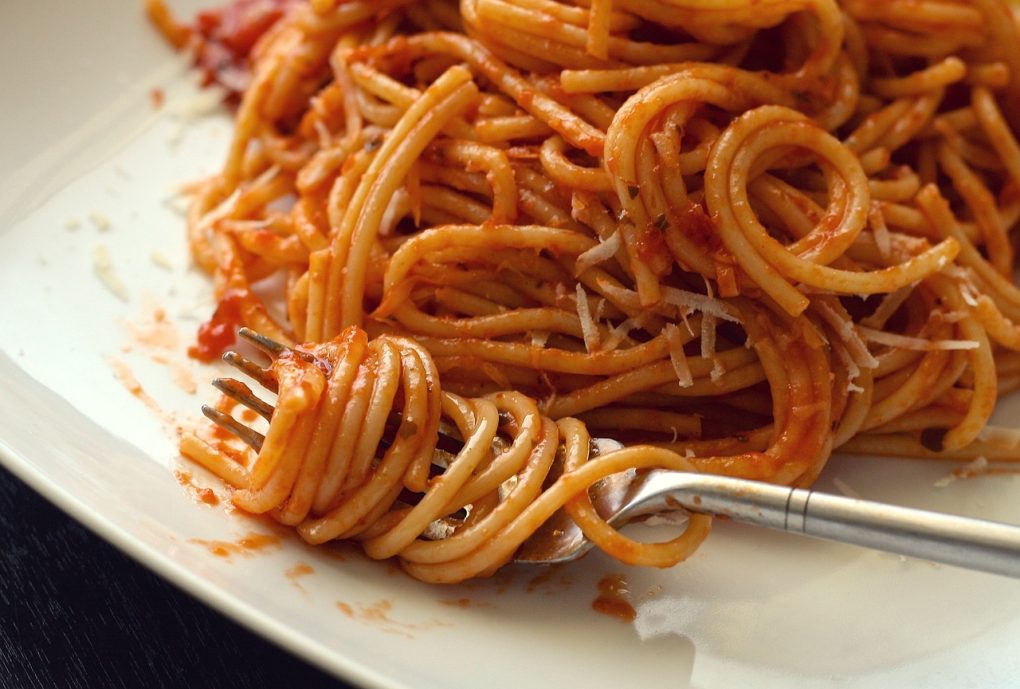
In Italian cuisine, pasta serves as a staple ingredient and frequently features on the weekly dinner menu. However, many individuals question whether it is possible to freeze cooked pasta and, if so, the appropriate storage method. This article examines the freezing feasibility of cooked pasta and provides guidance on preserving its freshness for an extended duration.
What is Freezing?
Freezing is a method of preserving food by cooling it to very low temperatures. During the freezing process, water molecules in the food item are converted into ice crystals, which help to preserve the food and maintain its flavor and texture.
You can store cooked pasta for up to two months when it is frozen. The crucial step in maintaining the freshness of cooked pasta after freezing is to seal it in an air-tight container or bag. This action reduces moisture loss and prevents freezer burn.
What are the Benefits of Freezing Cooked Pasta?
Freezing cooked pasta has a number of advantages. Firstly, it helps to reduce food waste, as cooked pasta can be stored for up to two months in the freezer. This means that you can prepare a larger portion of pasta and freeze the leftovers for later.
Freezing cooked pasta also means that you can save time by prepping meals in advance. This is especially useful on busy weeknights when you don’t have time to cook. All you have to do is take the cooked pasta out of the freezer, heat it up, and voila!
Another benefit of freezing cooked pasta is that it can help to maintain the flavor and texture of the pasta.
As the ice crystals form, they actively seal in the moisture, guaranteeing that the cooked pasta preserves its flavor and texture, even in its frozen state.
How to Freeze Cooked Pasta

Method 1: Freezing Cooked Pasta in Individual Portions
Cook the Pasta: Start by cooking your pasta of choice according to the package instructions until it is al dente (firm to the bite). Be sure to use enough water and add salt for seasoning.
Cool and Drain: Once the pasta is cooked, drain it in a colander and rinse it briefly with cold water to stop the cooking process and remove excess starch. Shake the colander gently to drain any remaining water.
Portion the Pasta: Divide the cooked pasta into individual portions based on your serving needs. For example, you can measure out one cup or two cups of pasta per portion.
Bag or Container: Place each portion of pasta into separate airtight freezer bags or containers. Make sure to remove any excess air from the bag before sealing it to prevent freezer burn. Alternatively, you can use freezer-safe containers with tight-fitting lids.
Label and Freeze: Label each bag or container with the date and contents. Place the bags or containers in the freezer and make sure they are laid flat to maximize storage space. The pasta can be frozen for up to 2-3 months.
Method 2: Freezing Cooked Pasta as a Whole Dish
Cook the Pasta Dish: Prepare your desired pasta dish, such as lasagna, baked ziti, or pasta casserole. Ensure that the pasta is fully cooked but still slightly firm, as it will continue to cook during reheating.
Cool the Dish: Allow the pasta dish to cool completely at room temperature. This step is crucial to prevent condensation and ice crystals during freezing.
Portion and Wrap: Cut the pasta dish into individual-sized portions or serving sizes. Wrap each portion tightly in plastic wrap or aluminum foil to protect it from freezer burn and maintain its shape.
Place in Freezer Bags: Transfer the wrapped pasta portions into freezer-safe bags. Squeeze out any excess air before sealing the bags tightly.
Label and Freeze: Clearly label the bags with the date and contents. Lay them flat in the freezer for optimal storage. The frozen pasta dish can be kept for 2-3 months.
Method 3: Freezing Cooked Pasta for Quick Reheating
Cook and Cool the Pasta: Cook the pasta until it reaches the desired doneness, then drain and rinse it with cold water to stop the cooking process and remove starch. Allow the pasta to cool completely.
Toss with Oil: To prevent the pasta from sticking together, toss it with a small amount of olive oil or vegetable oil. This will create a protective coating and help maintain the texture of the pasta when reheated.
Portion and Bag: Divide the cooked pasta into desired serving sizes or individual portions. Place each portion into separate airtight freezer bags. Flatten the bags to remove any excess air and ensure even freezing.
Label and Freeze: Label each bag with the date and contents. Place the bags in the freezer, ensuring they are laid flat to save space. This method allows for easy reheating of individual servings or small portions.
Reheating: When you’re ready to enjoy the frozen pasta, remove the desired portion from the freezer and thaw it in the refrigerator overnight. Reheat it quickly in the microwave or by adding it to simmering sauce on the stovetop. Remember to heat it thoroughly until it reaches a safe temperature throughout.
Which Types of Cooked Pasta Can You Freeze?
Most types of cooked pasta can be frozen, including macaroni, spaghetti, and lasagne. However, it is important to note that certain types of pasta, such as stuffed pasta or pasta with a heavy sauce, may not freeze as well as other types.
If you are looking to freeze these types of pasta, it is best to freeze them in individual portions rather than freezing the entire dish. This will help to ensure that the pasta is thawed evenly and that the flavors are not altered.
What are the Risks of Freezing Cooked Pasta?
While freezing cooked pasta can indeed reduce food waste and save time, it is important to note that there are certain risks involved with this process.
One of the main risks is that the texture of the cooked pasta may change after it has been frozen and thawed. This is because the ice crystals that form during the freezing process can break down the cell walls of the pasta, resulting in a change in texture.
In addition, freezing cooked pasta can also cause it to become soggy due to the release of moisture. This is especially true if the cooked pasta was not sealed properly before it was frozen.
Can You Freeze Cooked Pasta?
The answer is yes, you can freeze cooked pasta. However, it is important to ensure that the cooked pasta is properly sealed in an air-tight container or bag before it is placed in the freezer. This will help to reduce the amount of moisture that is lost and prevent freezer burn.
When it comes to reheating frozen cooked pasta, it is best to thaw it in the refrigerator overnight. Once thawed, the cooked pasta can be heated in the microwave or on the stovetop.
Conclusion
In conclusion, you can freeze and store cooked pasta for up to two months by sealing it in an air-tight container or bag. This method minimizes moisture loss and prevents freezer burn, thus maintaining the freshness of the pasta.
When reheating frozen cooked pasta, it is best to thaw it in the refrigerator overnight and then heat it in the microwave or on the stovetop.
Although freezing cooked pasta is an effective method to reduce food waste and save time, it is important to be aware of certain risks associated with this process. These risks include potential changes in texture and the possibility of the pasta becoming soggy.
